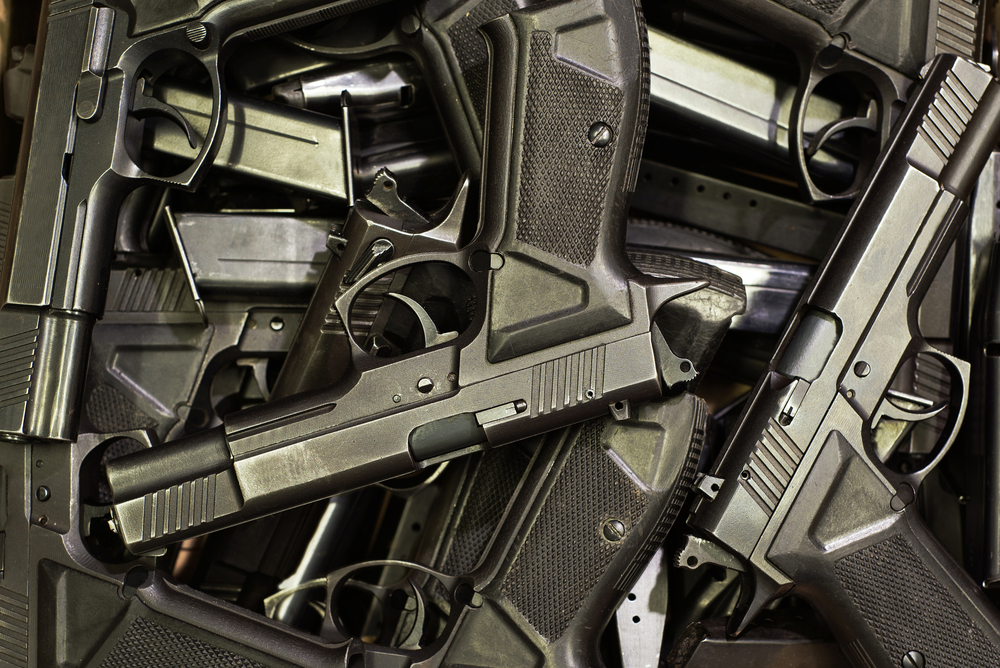![]() With the advent of March For Our Lives and the success of pro-gun control candidates in the 2018 midterm elections, today’s gun violence prevention movement is larger and more energized than ever. Meanwhile, the NRA is going broke, losing popularity and under investigation by multiple parties for campaign finance irregularities and ties to the Kremlin.
With the advent of March For Our Lives and the success of pro-gun control candidates in the 2018 midterm elections, today’s gun violence prevention movement is larger and more energized than ever. Meanwhile, the NRA is going broke, losing popularity and under investigation by multiple parties for campaign finance irregularities and ties to the Kremlin.
The stage is finally set for gun control advocates to break through and achieve major legislative reforms that can save lives en masse. Taking that next step, however, has proved challenging for a gun control movement plagued by low expectations.

Ladd Everitt
Capacity building in the gun control movement began in earnest following the mass shootings in Tucson, Ariz. (2011) and Newtown, Conn. (2012) when the first big-budget groups emerged: billionaire ex-mayor Michael Bloomberg’s Everytown for Gun Safety (which merged with Shannon Watts’ grassroots powerhouse Moms Demand Action for Gun Sense in America) and Americans for Responsible Solutions (now known simply as Giffords) founded by catastrophically injured gun violence survivor and former Congresswoman Gabby Giffords and her astronaut husband Mark Kelly.
Unlike the NRA, the gun control “Bigs” positioned themselves as the most moderate groups in their movement. Everytown and Giffords opted for bipartisanship whenever possible — sometimes to a fault — and supported only the most modest gun control policies, like expanded instant checks for gun buyers.
The “passion gap” between pro-gun and gun control advocates persisted not because pro-gunners were greater in number (the red-shirted volunteers of Moms Demand Action lived up to their 50-state billing), but because they were so much more intense when communicating with influencers and decision makers. The NRA grassroots made bigger asks of legislators and expected real results.
No more passion gap
This changed after the horrific mass shooting at Marjory Stoneman Douglas High School when student survivors formed the gun control group March for Our Lives (MFOL). MFOL spoke truth to power on the issue of guns in a way Americans had never seen before. The seminal moment occurred one week after the tragedy when MDS students confronted Republican Sen. Marco Rubio on-stage at a CNN town hall meeting in Sunrise, Fla. During a moment of dissembling by Rubio, the crowd erupted in applause at the prospect of “ban[ning] every single semiautomatic rifle sold in America.” MFOL organizers took this raw energy to Tallahassee and compelled the enactment of historic gun control legislation by Florida’s Republican-controlled state government.
If there were any doubts the Parkland students had closed the passion gap on the gun issue, they were erased on Election Day 2018. Gun violence prevention was a winning issue with voters across the country and gun control groups outspent the gun lobby for the first time ever. The flagship victory was that of gun violence survivor/Moms Demand Action leader Lucy McBath, who won the House race in Georgia’s 6th congressional district as a Democrat.
Expectations were high for the gun control movement heading into the 116th Congress with House Democrats engaging in visionary thinking about important issues like the environment (Green New Deal) and voting rights (HR 1). Would a Democratic-controlled House champion similarly inspiring gun control policies like licensing and registration, national buybacks, gun sale record computerization and smart technology mandates? Following the midterms result, the Democratic Party had every incentive to keep gun control voters mobilized and energized heading into the general election in 2020.
Unfortunately, House Democrats have taken a more modest approach, with the near-universal backing of gun control groups. Two reform bills have passed so far in the 116th Congress: HR 8 (Bipartisan Background Checks Act) and HR 1112 (Enhanced Background Checks Act). Both are narrow in scope and would institute policies widely supported by voters (e.g., 85% of Americans favor universal background checks; 80% of South Carolinians favor closing the “Charleston Loophole”). A Republican congressman from a “solidly red district” bemoaned the declining influence of the NRA while reporting that calls into his office were “evenly split for and against [HR 8].” Nevertheless, House Republicans were allowed to spoil the bills with harmful amendments.
A successful motion to recommit (which provides one final opportunity for the House to debate and amend a measure) was introduced by Republican Rep. Doug Collins of Georgia during consideration of HR 8. It would require Immigration and Customs Enforcement (ICE) to be notified when undocumented immigrants attempt to buy firearms through federally licensed dealers.
A trap
Republicans were able to pass the motion with the aid of 26 defecting Democrats, who were apparently released by their leadership. This infuriated freshman Congresswoman Alexandria Ocasio-Cortez, a New York Democrat, who tweeted about consoling “crying and confused” victims and survivors of gun violence in the gallery after the roll call on Collins’ motion. The ICE language immediately drew the (understandable) ire of the gun control movement’s intersectional allies as well.
The very next day, Republicans succeeded in adding language to HR 1112 that would prohibit the sale of firearms to individuals with “severe developmental disability” or “severe emotional instability.” This crude, vague and seemingly arbitrary language was designed to anger mental health and disability rights advocates — who work closely with the gun control movement on extreme risk protection order policy and other matters.
The NRA publicly crowed about the ICE amendment to HR 8, having laid a successful trap. Meanwhile, the gun control movement has been conspicuously silent about House Democrats’ betrayal, instead choosing to portray the passage of HR 8 as a significant milestone in the history of firearms legislation. It’s impossible to imagine the NRA having similar patience for Republicans taking votes in favor of gun control.
The House Democratic leadership understands there is little to no chance of enacting good gun control bills into law as long as Donald Trump sits in the White House and Mitch McConnell controls the Senate. The entire point of putting bills on the floor for consideration was to show the House of Representatives can pass strong, clean gun control legislation; to lay down a marker for a positive agenda that can move forward following the 2020 election. The gun control movement seems to be signaling it is OK for Democrats to fall short of that goal in a chamber they control by a majority of 235-197 — even as evidence continues to emerge that the NRA’s grip on Republicans is loosening.
The gun control movement can still capitalize on the remarkable cultural changes wrought by the Parkland students and other young activists, but they will have to play a smarter hand in Congress. The movement still has no Green New Deal, no HR 1, because it has yet to demand such a plan, or even conceive of one. It will take this type of bold, visionary advocacy to finally break the logjam and create change that will end America’s epidemic of gun violence.
Ladd Everitt is the director of One Pulse for America, a gun violence prevention group founded by actor/LGBTQ rights activist George Takei after the mass shooting at The Pulse nightclub in Orlando, Fla.
This column has been updated.
